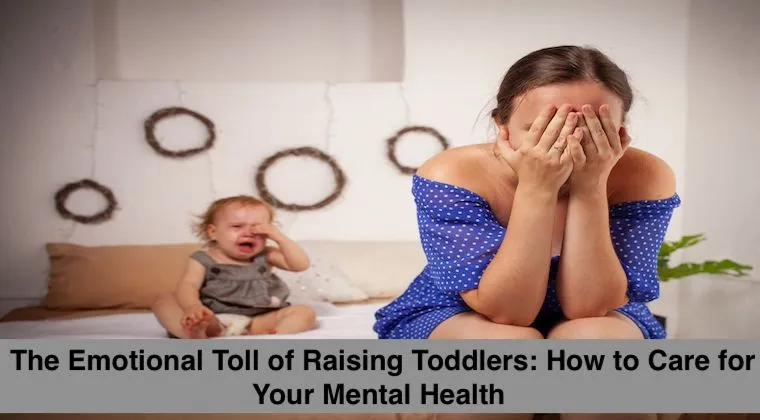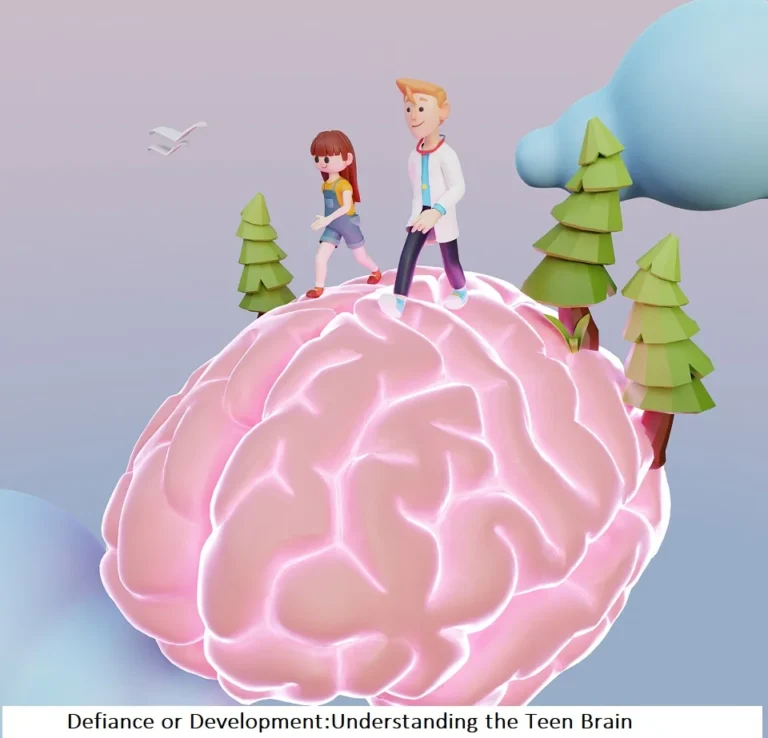
The process of raising a toddler is both incredibly fulfilling and totally draining. Raising toddlers places a heavy emotional burden on parents because these children make persistent demands while having tantrums and requiring constant nighttime attention which drains parents mentally. Your focus remains on caring for your child but maintaining your emotional health remains crucial at the same time. The stressful period of toddlerhood proves difficult for numerous parents who experience anxiety and burnout while caring for their children. When you adopt the right strategies along with the correct mindset you will succeed in caring for both your child and yourself effectively.
Understanding the Emotional Struggles of Toddler Parenting
During toddlerhood children experience rapid development while exploring their environment thus requiring parents to remain constantly alert. Here are some common emotional challenges parents face:
Sleep deprivation: Toddlers frequently disturb their parents at night which causes both physical and mental fatigue in their caregivers.
Parental guilt: Numerous parents experience feelings of regret when they lose patience and have trouble balancing work responsibilities with childcare duties.
Overstimulation: The continuous noise together with the disarray and excessive energy that toddlers create proves overwhelming for parents.
Lack of personal time: Your child demands constant attention which makes it challenging to allocate time for self-care activities.
Increased anxiety and stress: Your anxiety levels rise because you worry constantly about your child’s security and their physical and mental progress.
Emotional exhaustion: Taking care of your toddler while simultaneously managing your emotional state leads to complete exhaustion.
Relationship strain: Caring for a toddler often puts pressure on romantic relationships because both parents usually feel completely exhausted.
How to Care for Your Mental Health
Raising toddlers remains difficult but there exist multiple methods to safeguard your mental health:
1. Prioritize Sleep Whenever Possible
Sleep deprivation results in both irritability and emotional exhaustion in people. Establish a rest time by napping during your child’s rest period and develop an evening routine that promotes better sleep. If possible, share nighttime duties with a partner or trusted family member. You should modify your daily plan to include periods of relaxation before bedtime since this helps your body relax before sleep.
2. Ask for Help Without Guilt
You don’t have to do everything alone. Welcome assistance from your partner and family members or close friends to minimize the emotional pressure that comes with caring for toddlers. When you need a break ask for childcare so you can either rest or spend time on yourself. You may want to look for a babysitter or join a parenting group which allows parents to switch child care duties with one another.
3. Practice Self-Compassion
Keep in mind that parenting brings its challenges yet nobody can perform flawlessly in this role. It’s okay to have tough days. Show yourself compassion and stay away from comparing your parenting experience with others because everyone handles things differently. All parents deal with difficulties and parents should focus on their accomplishments rather than their mistakes.
4. Find Moments for Self-Care
Even brief daily sessions of 10 minutes will provide enough time to restore your energy. Music listening together with warm shower sessions and short walks and breathing exercises can help you relax. When you have time, participate in enjoyable activities such as reading, writing or practicing yoga.
5. Connect with Other Parents
It is comforting to engage in conversations with other parents who face similar challenges. You should join parenting groups or connect with friends while using online communities to get support and receive advice. A network of supporters allows you to find encouragement and useful advice regarding difficult times.
6. Set Realistic Expectations
Let go of perfectionism. Your residence does not need perfect cleanliness while your child requires no nonstop amusement. It’s okay to let things slide sometimes. You should prioritize establishing a protective environment instead of striving to meet unattainable parenting standards.
7. Communicate with Your Partner
Partners share parenting responsibilities which leads to less parental stress. Both partners should share their emotions as well as concerns about parenting while discussing support methods for each other. A strong partnership helps reduce the overwhelming feelings of parenting and requires you to schedule meaningful conversations.
8. Establish Routines and Boundaries
Having a daily schedule for your toddler will assist in cutting down on the mess and establish some order in your life. It helps to organize the day when you establish the regularity of times for eating, playing and sleeping. Don’t hesitate to turn down more commitments which take your energy as you establish your personal limits.
9. Engage in Physical Activity
Physical exercise serves as a stress-reduction tool and mood-enhancer. Just a brief outdoor stroll will produce major changes. You can use stretching exercises at home or dance with your toddler to get some physical activity if the gym is not feasible for you.
10. Incorporate Mindfulness and Relaxation Techniques
Mindfulness helps people stay in the present moment and decreases stress levels. The simple practices of deep breathing, meditation and progressive muscle relaxation can assist in calming your mind. Through mindfulness, you can learn to cherish the time spent with your child instead of panicking due to stress.
11. Make Time for Personal Relationships
You need to sustain your friendships outside of parenting because your toddler will occupy most of your time. Devote some time to friends, plan dates with your partner and develop friendships that are healthy for you.
12. Celebrate Small Wins
The continuous flow of parenting responsibilities seems endless but acknowledging small successes makes a big impact. The small accomplishments like surviving a tantrum without losing your temper or getting time for a cup of coffee alone are worth appreciating.
13. Take Breaks Without Guilt
There is no shame in needing a break. Create time for yourself even if you can only find a few minutes to get some fresh air outside. Allowing yourself time to rest will prevent burnout while strengthening your capacity to manage parenting difficulties.
14. Educate Yourself About Toddler Development
Knowledge about your child’s stage of development together with their behaviour will decrease your frustration. Learning from parenting books or workshops will give you knowledge about your toddler’s behaviour thus making it easier to manage their actions.
15. Seek Professional Support If Needed
When you experience persistent overwhelming anxiety or depression, a therapist or counselor can offer helpful assistance. Your mental health is just as important as your child’s well-being. Therapy offers people ways to cope with their situations and gives them a place where they can freely express their feelings. Raising a toddler is an emotional rollercoaster and the emotional toll of raising toddlers can feel overwhelming at times. Nonetheless, you need not face it by yourself. Through mental health prioritization, support requests and selfcare practice you can build an environment that benefits both you and your child. Parents who receive proper care will do better in raising happy and thriving toddlers. Parenting is not about being perfect it’s about doing your best while taking care of yourself along the way. Just as your child does you also deserve love, care and patience. Just take each day at a time and remember you are not the only one who is going through this.te it alone. By prioritizing your mental health, asking for support and practicing selfcare, you can create a healthier and happier environment for both yourself and your child. Remember, a well-cared-for parent is better equipped to raise a happy, thriving toddler. Parenting is not about being perfect; it’s about doing your best while taking care of yourself along the way. You deserve love, care and patience just as much as your child does. Take each day as it comes and know that you are not alone in this journey.


